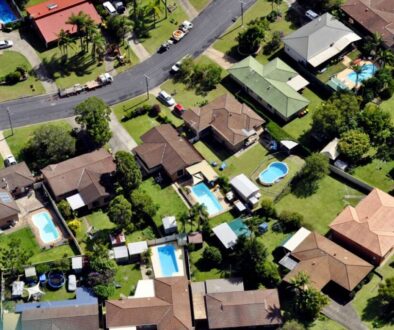How to Train New Techs With Route Efficiency in Mind
To thrive in the competitive pool maintenance industry, ensuring that new technicians are well-trained in route efficiency is crucial. This blog post delves into the best practices for training new techs to maximize their productivity, reduce travel time, and enhance customer satisfaction. We will cover various strategies, tools, and insights that can help streamline training processes, ultimately benefiting both the technicians and the company as a whole.
Introduction
In today’s fast-paced world, businesses need to optimize every aspect of their operations, and the pool maintenance industry is no exception. Training new technicians with a focus on route efficiency can lead to significant gains in productivity and customer satisfaction. As a pool business broker, Tower Business Brokers, Inc. understands the importance of this training, especially for those looking to buy pool routes. In this article, we will explore various methods for training technicians to ensure they efficiently manage their routes while providing excellent service to clients.
Understanding Route Efficiency
- Route efficiency refers to the strategic planning and execution of service routes to minimize travel time and maximize service delivery. Efficient route management can lead to reduced fuel costs, lower wear and tear on vehicles, and increased overall productivity.
- For example, implementing route optimization software can provide technicians with the best paths for their daily assignments. According to recent statistics, companies that optimize routes can save up to 30% on operational costs.
- Additionally, sharing anecdotes from experienced technicians about how they managed their routes can provide new hires with real-world insights. These stories can spark discussions and encourage new techs to think critically about their own route management.
Training Techniques for Route Efficiency
- One effective strategy for training new technicians is through hands-on experience. Pairing new hires with seasoned professionals allows them to learn not only the technical skills needed for pool maintenance but also the nuances of efficient route management. This mentorship approach fosters a practical learning environment.
- Furthermore, introducing simulation software where techs can practice route planning and execution without the pressures of real-time service can enhance their learning experience. Simulations allow new techs to experiment with different approaches and see the immediate impact of their decisions.
- Case studies of companies that have successfully implemented these training techniques can provide compelling evidence for their effectiveness. For example, a pool service company that adopted a mentorship program reported a 20% increase in technician productivity within the first year.
Utilizing Technology in Training
- Technology plays a crucial role in modern training approaches. By using mobile applications that track performance metrics, new techs can receive real-time feedback on their route management. This immediate information helps them adjust their methods for optimum efficiency.
- Another useful technological tool is GPS route mapping. Training techs to leverage GPS for daily routes can significantly enhance their understanding of efficient travel patterns. Providing them with access to mapping software helps them visualize the optimal routes before they head out.
- Industry experts suggest that incorporating technology into training not only accelerates learning but also prepares technicians for future advancements in the field. As the pool maintenance industry evolves, techs who are comfortable with technology will have a competitive edge.
Best Practices for Maintaining Efficiency
- To ensure long-term success, instilling best practices in new hires from the outset is essential. Encourage techs to plan their routes the night before and prioritize appointments based on location and service needs. This practice can significantly reduce idle time and enhance customer satisfaction.
- Additionally, regular follow-up training sessions can reinforce the importance of maintaining efficiency and offer new strategies for improvement. Workshops focusing on time management, customer service, and technical skills can provide ongoing support for technicians.
- By fostering a culture of continuous improvement, companies can empower their technicians to take ownership of their routes and encourage them to share ideas for enhancing efficiency.
Effective Communication in Route Management
- Open communication is vital for efficient route management. Training new techs to effectively communicate with dispatchers and clients can streamline operations and minimize delays. For example, teaching techs to provide updates on their progress ensures that dispatchers can make informed decisions about scheduling and routing.
- Encouraging technicians to build relationships with clients can also improve service efficiency. When techs understand their clients’ preferences and property layouts, they can perform services more effectively and anticipate future needs.
- Incorporating communication skills training into the onboarding process will ensure that new techs are equipped to handle client interactions professionally and efficiently.
Fostering a Team Approach
- Promoting teamwork among technicians can significantly enhance route efficiency. By encouraging techs to work together, share tips, and collaborate on complex jobs, companies can create a supportive environment that fosters collective problem-solving.
- Organizing regular team meetings allows technicians to discuss challenges they face with route management and brainstorm solutions. This approach not only builds camaraderie but also leads to practical solutions that can improve overall efficiency.
- Highlighting team successes in meetings can motivate technicians and reinforce the idea that they are part of a larger mission. Recognizing their efforts in contributing to the company’s efficiency goals can also improve morale.
Monitoring and Assessment
- Continuous monitoring and assessment of technician performance is essential for ensuring route efficiency. Implementing key performance indicators (KPIs) such as service completion time, customer feedback, and fuel consumption can provide insights into areas for improvement.
- Regular performance reviews can help identify trends and patterns that may indicate inefficiencies. By analyzing this data, companies can adjust training programs to address specific needs of their technicians.
- Additionally, utilizing customer feedback forms can provide valuable insights into clients’ perceptions of service efficiency. This information can guide training improvements and help technicians understand the direct impact of their performance on customer satisfaction.
Adapting to Changes in the Industry
- The pool maintenance industry is constantly evolving, and training programs must adapt to these changes. Staying informed about industry trends, regulations, and technological advancements will allow companies to provide relevant training for their technicians.
- For instance, as eco-friendly practices become more prevalent, incorporating training on sustainable pool maintenance techniques can position technicians as experts in this area. This knowledge not only enhances their skills but also aligns with consumers’ growing preference for environmentally conscious services.
- Moreover, providing ongoing education opportunities for technicians can enhance their professionalism and adaptability. Encouraging participation in workshops and industry conferences can keep them updated with the latest practices and technologies.
Conclusion
In summary, training new technicians with a focus on route efficiency is essential for success in the pool maintenance industry. By implementing effective training techniques, utilizing technology, fostering communication, and promoting a team-oriented culture, companies can significantly enhance their technicians’ performance. Continuous monitoring and adaptation to industry changes will further ensure that new techs remain competitive and efficient in their roles.
With the right training and support, technicians can maximize their productivity, leading to improved customer satisfaction and ultimately contributing to the growth of the business. If you’re interested in exploring pool routes for sale, contact Tower Business Brokers today to kickstart your journey in the thriving pool maintenance industry.



